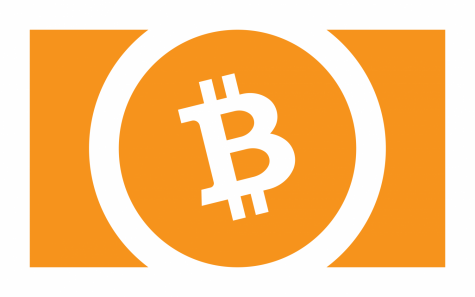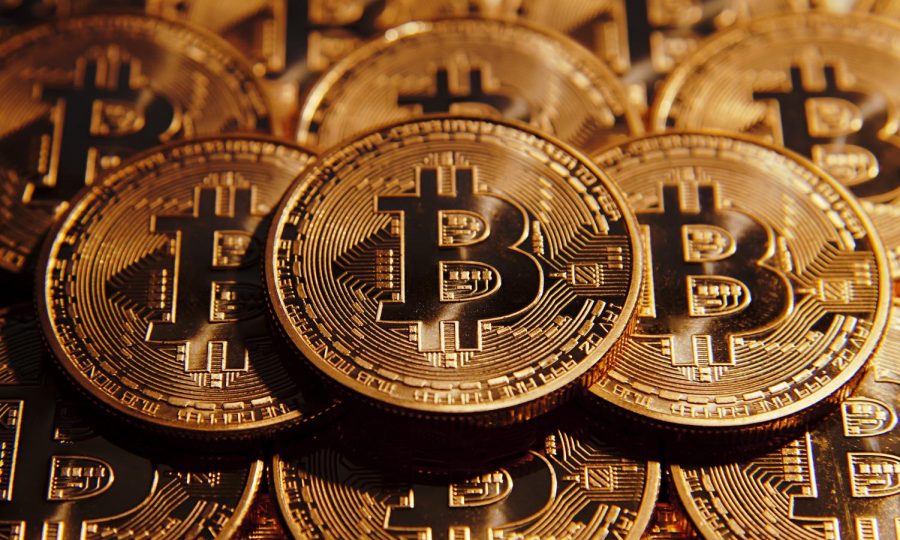www.crypto-news.net
Bitcoin: Future of Investment or Financial Fad?
Throughout 2017, Bitcoin, an online currency, raised in value from $1,000 to $17,800, and it could continue to fluctuate in the coming year. This quick, astronomical rise in value shows how online currency is changing with the growing technological culture. The growing question remains: is Bitcoin really the future of currency?
This new system of currency exchange works with anonymous, international online payments that take out the middleman and replace it with a ledger (a list of financial accounts) anyone can access. The goal of this new system is to produce a currency that is independent of any central authority and that can be used with very few transaction fees.

vu.hn.html
When Satoshi Nakamoto announced Bitcoin in 2008, he stressed his concern with other attempts at digital spending. A rising problem called “double spending” was overtaking the online market. There was no way of verifying that the money was not also being spent somewhere else, because the middleman would take too long verifying transactions. Buyers could purchase one thing with their currency, then use that same online currency to purchase another. Nakamoto’s goal was to create a peer-to-peer transaction system that would cut out the problematic middleman.
There are people called “miners” who work independently for Bitcoin. These people keep track of the online leger and verify online purchases. Miners compete by solving complex math problems to verify that Bitcoin transactions are valid, and the miners are paid in Bitcoins. These complex math problems, or algorithms, make it harder for hackers to double-spend, because hackers would have to also solve a series of math problems created by miners. There are an estimated 100,000 miners working for Bitcoin, and that number increases as the value of Bitcoin does.
In most modern systems of currency, such as the American dollar, the ledger cannot be accessed by anyone but the banks and private businesses that handle the money. These corporations that handle the money act as a middleman between the buyer and the seller. If there are international purchases, money must be exchanged from one currency to another. These exchanges are often costly and involve a high tax rate.
Bitcoin changes this process by taking out those banks and companies and leaves individuals with a public leger. There is no company that holds the money before it is exchanged because Bitcoins are internationally used with no need for an exchange. Bitcoins are not regulated by any government or authority, which has lead to it’s quick rise is value.

www.realclosers.com
There are concerns with this new system, however. Because of the anonymous nature of Bitcoin, many illegal sellers are taking advantage of this new way of doing business. Those in the black market selling drugs and weapons can easily exchange money off the record of authorities. Countries such as China, Japan, and Australia have started to weigh regulations because of Bitcoin’s underground use. As country authorities continue to tighten the grip on this currency, the future of Bitcoin could be at risk.
Mr. Ryan Swinehart, Jonathan Alder’s Financial Investing teacher, remarks on his skepticism of this rising financial fad. He describes this rise in value as a “bubble,” meaning that as the value increases, the greater the chance for the system to collapse. Swinehart relates this bubble to “Tulip Mania” in Denmark that happened in the 1630s. In that event, tulip bulbs had just hit the market and because of a non-fatal virus, their rarity increased. People began to buy these bulbs for all they owned, drastically raising the market’s value. Once the bulbs were at an all time high, people began selling them at drastic rates. With everyone selling and no one buying, value plummeted and lead Denmark into an economic depression. This event does closely relate to the events of the Bitcoin market, and Swinehart’s skepticism should raise concerns.
Even Robert Chiller, author of the book Irrational Exuberance and winner of the 2013 Nobel Memorial Prize in Economic Science expresses his Bitcoin concerns to Popular Science Magazine. “It’s hard to know when the bubble will end,” he says while commentating on the unpredictable nature of Bitcoin.
Swinehart uses an example to relate his Bitcoin concerns as to why the currency system is illogical to younger generations:
Does Bitcoin hold the key for the future of online investments? Or is this just a trend that will soon plummet as did the Tulip Mania of Denmark? Only time will tell the future of this online phenomenon.
